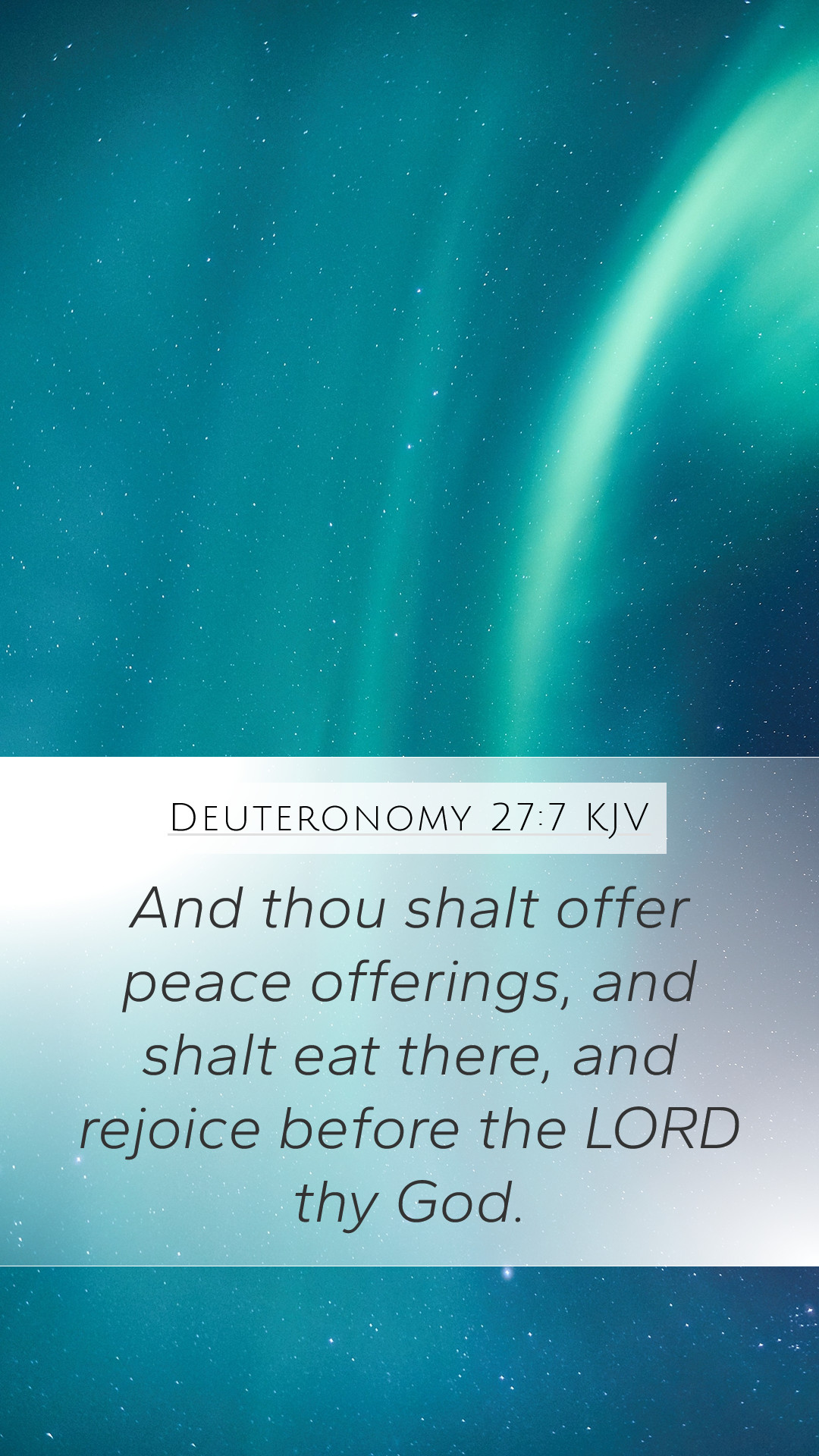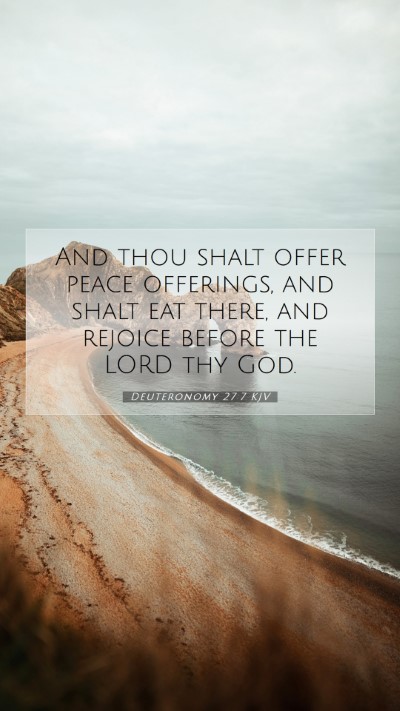Understanding Deuteronomy 27:7
Deuteronomy 27:7 states: "And you shall offer peace offerings and shall eat there, and rejoice before the Lord your God." This verse emphasizes not just the act of offering sacrifices but also the communal and celebratory aspects of worship within the Israelite tradition.
Bible Verse Meaning and Commentary
This verse is situated within a section of Deuteronomy where Moses instructs the Israelites on how to conduct themselves once they enter the Promised Land. The choice of peace offerings symbolizes a unique facet of worship where the worshippers share in a meal, acknowledging God’s provision and presence among them.
Insights from Public Domain Commentaries
- Matthew Henry's Commentary: Henry emphasizes the importance of joy in worship, highlighting that peace offerings are not merely ritualistic but are meant to foster a sense of fellowship among God's people. The act of rejoicing signifies gratitude and recognition of God's blessings.
- Albert Barnes' Notes: Barnes points out that the peace offerings were a means for the Israelite community to express their thankfulness and for the individual to enjoy a moment of communion, reflecting the harmony between the Israelites and God. He notes that the communal meal aspect signifies the inclusivity of worship.
- Adam Clarke's Commentary: Clarke elaborates on the peace offerings, stating they were a representation of thankfulness and bliss. He suggests that this practice instills a sense of unity among the people, as they come together to celebrate God’s goodness.
Applying the Verse
Understanding this verse prompts believers today to reflect on the nature of their worship. It is a reminder that worship should be joyful and communal, enriching the lives of those who participate. In application:
- Engagement in Community: Bible study groups can further reflect this concept by sharing in fellowship meals or gatherings that focus on gratitude and communal worship.
- Joyful Worship: Individuals seeking online Bible study resources might find it beneficial to create an atmosphere of rejoicing and togetherness during their discussions and gatherings.
- Reflective Practice: When interpreting Bible verses during study lessons, emphasize the importance of joy and gratitude in the life of a believer.
Significance of the Peace Offerings
The peace offerings instituted here highlight several key points in understanding Scripture:
- Symbolism of Peace: Represents harmony between God and His people, illustrating the relational aspect of faith.
- Communal Aspect: Encourages followers to gather, strengthening community ties and fostering unity in faith.
- Celebration of God's Provision: Recognizes and thanks God for His continuous blessings, creating a culture of gratitude.
Cross References
- Leviticus 7:11-15 – Discusses the peace offerings in greater detail.
- 1 Corinthians 10:16-17 – Reflects on the communion among believers as a sharing in the body and blood of Christ.
- Hebrews 13:15-16 – Encourages believers to offer sacrifices of praise and to do good and share with others.
Conclusion
Deuteronomy 27:7 serve as an essential reminder of the communal and joyful aspects of worship. The significance of offering peace offerings is profound in understanding the relational dynamics between God and His people, urging contemporary believers to appreciate the value of community in faith, celebrate God’s provision, and engage in joyful worship.


